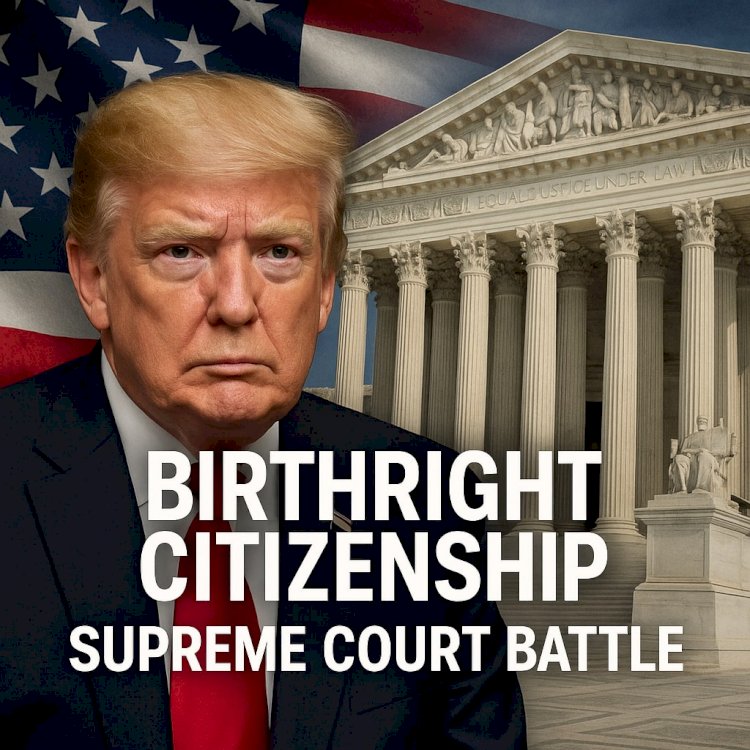Trump’s Birthright Citizenship Order Sparks High-Stakes Supreme Court Battle

Washington — Former President Donald Trump’s attempt to redefine who qualifies as a U.S. citizen is moving into its most critical stage yet. After months of courtroom fights, the administration has asked the Supreme Court to uphold an executive order that would sharply limit birthright citizenship, a principle long anchored in the 14th Amendment.
The Policy at the Center of the Storm
On January 20, 2025—his first day back in office—Trump signed Executive Order 14160, which reinterprets the guarantee of citizenship for children born on U.S. soil. Under the directive, only children with at least one parent who is a U.S. citizen or a lawful permanent resident would automatically gain citizenship. Children of undocumented immigrants or short-term visa holders would no longer qualify.
The measure was slated to take effect beginning February 19, but lawsuits quickly halted its nationwide rollout. The administration argues the change is necessary to stop so-called “birth tourism” and remove incentives for illegal immigration. Critics counter that the order directly contradicts constitutional protections and would destabilize generations of settled law.
Conflicting Court Rulings
The order has faced a barrage of challenges from states, advocacy groups, and civil rights organizations. Federal judges in Washington, Maryland, Massachusetts, and New Hampshire issued injunctions blocking its enforcement. In one prominent case, Judge John Coughenour in Washington state described the order as “blatantly unconstitutional.”
The legal picture became more complicated in June, when the Supreme Court ruled that lower courts cannot impose sweeping nationwide injunctions unless plaintiffs are directly affected. While that decision did not touch on the substance of Trump’s order, it narrowed the reach of blocks imposed by individual judges.
Appeals courts have also weighed in. The 9th Circuit struck down the order as unconstitutional, while judges in Massachusetts and New Hampshire imposed injunctions to protect families whose children could be denied citizenship. These conflicting rulings have only heightened the urgency for a definitive answer from the nation’s highest court.
What Lies Ahead
The Trump administration’s petition now puts the Supreme Court in position to resolve one of the most consequential constitutional disputes in decades. If the justices take the case, they will confront the meaning of the Citizenship Clause, a guarantee dating back to 1868.
The stakes are enormous: a ruling in favor of the administration could alter the legal status of future generations, while opponents warn it could also leave children born on U.S. soil effectively stateless.
Divided Reactions
Supporters of the policy argue that automatic citizenship for children of noncitizens was never the intent of the 14th Amendment. They contend that narrowing the rule would restore integrity to immigration policy and reduce illegal crossings.
Opponents, however, stress that the order undermines more than a century of precedent, particularly the Supreme Court’s 1898 ruling in United States v. Wong Kim Ark, which affirmed that virtually all individuals born in the country are citizens. Civil rights groups warn of chaos, confusion, and a patchwork of enforcement that could harm countless families.
A Defining Test for the Court
For now, the future of birthright citizenship in the United States hangs in the balance. The Supreme Court must decide not only whether Trump’s order can stand, but also whether it will rewrite one of the most fundamental guarantees of American identity.

 content-team
content-team 


















